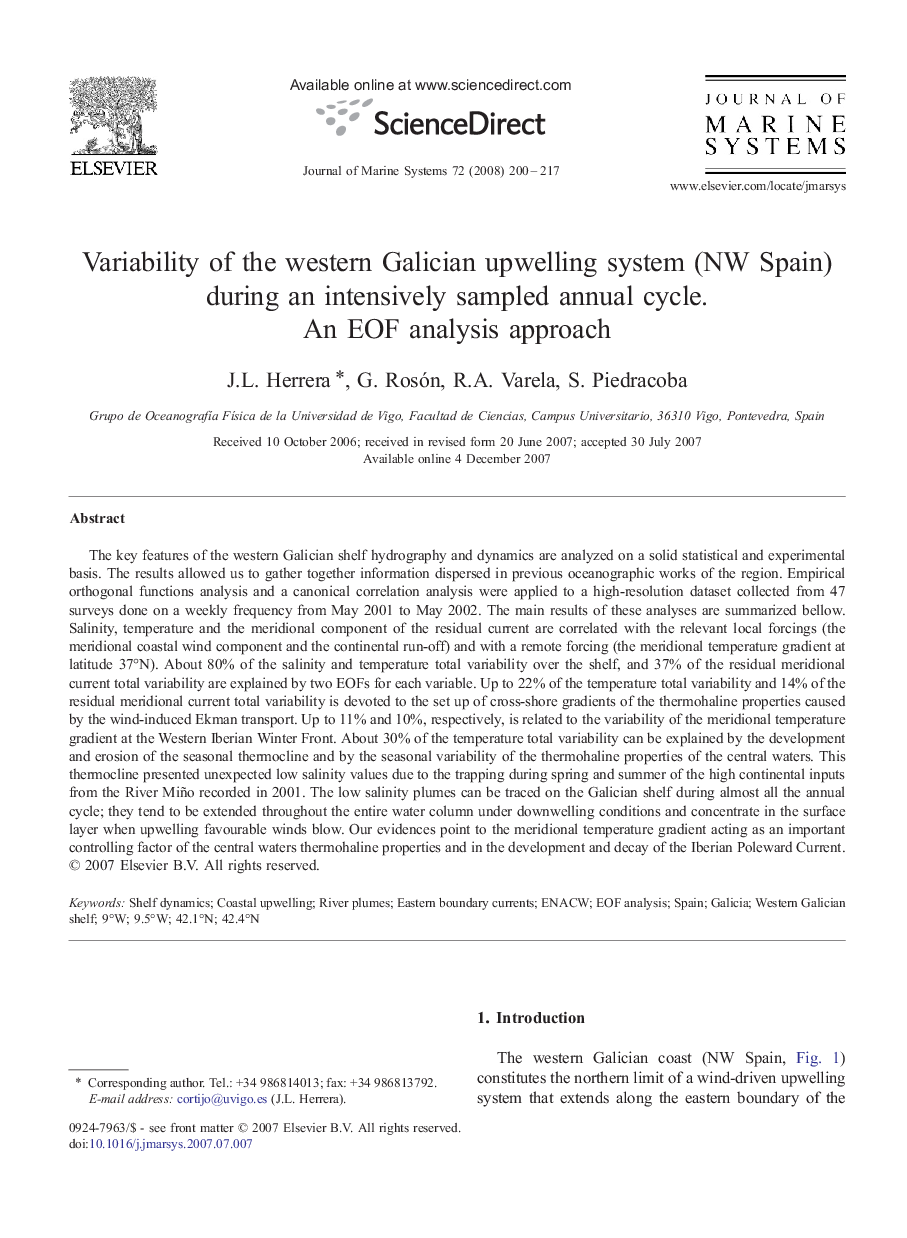| کد مقاله | کد نشریه | سال انتشار | مقاله انگلیسی | نسخه تمام متن |
|---|---|---|---|---|
| 4548838 | 1627346 | 2008 | 18 صفحه PDF | دانلود رایگان |

The key features of the western Galician shelf hydrography and dynamics are analyzed on a solid statistical and experimental basis. The results allowed us to gather together information dispersed in previous oceanographic works of the region. Empirical orthogonal functions analysis and a canonical correlation analysis were applied to a high-resolution dataset collected from 47 surveys done on a weekly frequency from May 2001 to May 2002. The main results of these analyses are summarized bellow. Salinity, temperature and the meridional component of the residual current are correlated with the relevant local forcings (the meridional coastal wind component and the continental run-off) and with a remote forcing (the meridional temperature gradient at latitude 37°N). About 80% of the salinity and temperature total variability over the shelf, and 37% of the residual meridional current total variability are explained by two EOFs for each variable. Up to 22% of the temperature total variability and 14% of the residual meridional current total variability is devoted to the set up of cross-shore gradients of the thermohaline properties caused by the wind-induced Ekman transport. Up to 11% and 10%, respectively, is related to the variability of the meridional temperature gradient at the Western Iberian Winter Front. About 30% of the temperature total variability can be explained by the development and erosion of the seasonal thermocline and by the seasonal variability of the thermohaline properties of the central waters. This thermocline presented unexpected low salinity values due to the trapping during spring and summer of the high continental inputs from the River Miño recorded in 2001. The low salinity plumes can be traced on the Galician shelf during almost all the annual cycle; they tend to be extended throughout the entire water column under downwelling conditions and concentrate in the surface layer when upwelling favourable winds blow. Our evidences point to the meridional temperature gradient acting as an important controlling factor of the central waters thermohaline properties and in the development and decay of the Iberian Poleward Current.
Journal: Journal of Marine Systems - Volume 72, Issues 1–4, July 2008, Pages 200–217